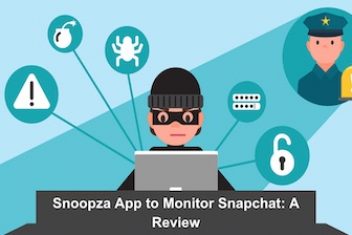Now more than ever, healthcare facilities must fully revolutionize the way things are handled within the field where they reside.Let’s take a look into some aspects in which modern innovation has greatly changed the healthcare industry.
Wearable Monitoring Devices
Monitoring your health vitals is very crucial to the entirety of your well-being. Because it would be such a hassle for people to constantly visit clinics and hospitals just to monitor and assess physiological data that indicate the status of their internal organs, they may just choose to buy wearable digital health gadgets instead.
Such wearables include wristwatches, necklaces, rings, and other forms of jewelry. Recently, the technology has already extended to other apparel as well, such as jackets and body-hugging suits. This makes it easier for doctors to acquire real-time data from their patients as they engage in physical activities such as running, swimming, and a variety of other sports.
Even if the patients are not into an intense physical regimen, their vital signs such as heart rate, breathing rhythms, and blood pressure could be intensively indexed and monitored. Utilizing this method would greatly diminish the workload of the doctors as well as that of the patients themselves.
Instead of doing additional activities and sets of routines during the actual checkup, the pre-obtained data stored in the wearable devices could just be downloaded into a computer and be given the in-depth analysis it needs. All that is available because of technological breakthroughs in healthcare software development.
Read: Most Affordable Medical Billing Software in 2023
Telemedicine
Making the actual trip from the patients’ house to the doctor’s clinic could be time-consuming, especially for those who are so badly ill that they can’t even walk or even stand up. As a solution, telemedicine is now becoming a trend in many healthcare facilities all over the world.
In such a scheme, the latest breakthroughs in computer networking, cloud computing, and mobile app technology are the ultimate key players. Instead of requiring patients to be physically present in front of a doctor so that the much-needed counseling could be conducted, high-definition cameras and screens could be utilized instead.
If the doctor’s computer, as well as that of the patients’, are connected by a stable-enough internet connection, a thorough conversation could already take place which should be as good as the actual one that could have happened in a real clinic.
Telemedicine also requires the aid of wearable monitoring devices since a lot of them these days are already equipped with data-transmission capabilities much like those that can be found in the typical cellphones and Wi-Fi connected devices that people nowadays are so fond of using.
As the patients go about their daily activities, their vitals can just be evaluated by healthcare professionals even in times when they’re not aware of it. These can help doctors come up with a more honest assessment of what the patients exactly need because, in truth, the patients themselves are not always very honest about what they are really experiencing as they deal with their illnesses.
Read: How Artificial Intelligence Can Power Your Retirement
AI as Doctors
This is considered to be a very far stretch, at least for the time being. But many healthcare professionals are strongly considering the possibility of artificial intelligence as the ultimate doctor in the future.
The idea sprouted from the reality that human doctors, no matter how skillful or experienced they are, could give out some truly biased diagnoses to their patients. It can’t be denied that some doctors view their profession as some sort of business and nobody can ever blame them for that.
As those doctors perform their supposed civil duties to people, they would sometimes offer forms of advice that can make patients spend more than what’s truly necessary. Another factor that makes this matter much worse is the reality that diagnoses can greatly vary from one doctor to another.
Read: The Cloud and Telehealth Can Coexist Safely
To truly handle this problem, AI experts are suggesting that a fully automated system that can declare health-related analysis without any form of bias should be built, developed, and implemented. Should such an electronic health assistant come into existence in the near future, it will not be subject to the physical burnout or emotional biases that many human doctors often find themselves in.
If you like the content, we would appreciate your support by buying us a coffee. Thank you so much for your visit and support.



